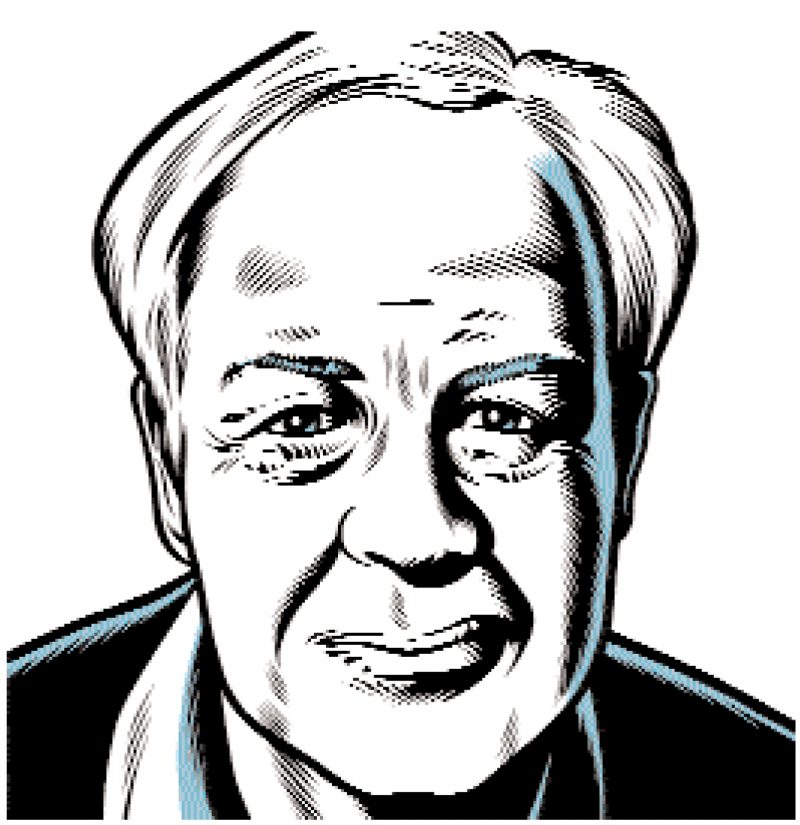Richard Rorty may be America’s most influential living philosopher; he is certainly both the most controversial and the most widely read. The son of Trotskyite journalists, he grew up in New York and New Jersey, where his family farm occasionally hid Trotskyites fleeing Stalinist assassins. After studying philosophy at the University of Chicago and Yale, he took a post teaching at Wellesley in the early Sixties. He soon moved to Princeton, where he taught for twenty years.
For his first ten years at Princeton, he toiled as a standard analytic philosopher; though he taught some so-called Continental philosophers—Europeans like Hegel and Heidegger who spun dramatic, sweeping narratives about great big things like the World Spirit or Being—his work continued in the tradition of analytic philosophers, who tend to write dense, logical pieces on the structure of sentences and other narrowly circumscribed topics in the philosophy of mind and language. Mid-way through his career at Princeton, however, he experienced a sort of philosophical rebirth: after discovering the work of contemporary European philosophers such as Jacques Derrida, and rediscovering the work of early American pragmatists—C. S. Peirce, John Dewey and William James—he began to lose his faith in the traditional problems of analytic philosophy. Over the course of the Seventies, he published a series of papers increasingly critical of the concerns of the analytic philosophy establishment. These papers culminated in the 1979 blockbuster Philosophy and the Mirror of Nature, a book taken as a wholesale dismantling of the apparatus of philosophy since Descartes.
Philosophers since Descartes—or even, Rorty argues, since Plato—have understood our primary relationship with the world as one of representation. We attempt to represent the world as accurately as we can; the pursuit of truth is based on the hope that we might represent the World As It Really Is, the world in- and of-itself, the world free of the taint of human perspective and fallibility. Representation, Rorty claimed in Philosophy and the Mirror of Nature, is a worn-out metaphor, a philosophical position that leads to endless squabbles: if we believe we have represented the world accurately, we fall victim to a blinkered and arrogant dogmatism; the other extreme, the fear that we may never overcome the gap between our subjective minds and the objective world, leads us to epistemological skepticism—the idea that we can never really know anything. Rorty suggests that we replace the idea of representations of the world with the idea of descriptions of the world designed to help us achieve particular, finite purposes. Rather than ask if we are in touch with the way the world really is, Rorty asks if our descriptions and our vocabularies help us complete our projects....
You have reached your article limit
Sign up for a digital subscription and continue reading all new issues, plus our entire archives, for just $1.50/month.
Already a subscriber? Sign in





